
Jeff Garrison
Skidaway Island Presbyterian Church
Romans 12:1-3
July 28, 2019
 Have you ever felt like you’re taking two steps forward and one step back? Sometimes life’s that way. It’s like climbing a cinder cone volcano. The ground is made of ash and is so unstable that you literally take two steps up and then slide back. You just hope to make progress. A 700-foot climb can take forever. But isn’t that how much of life is?
Have you ever felt like you’re taking two steps forward and one step back? Sometimes life’s that way. It’s like climbing a cinder cone volcano. The ground is made of ash and is so unstable that you literally take two steps up and then slide back. You just hope to make progress. A 700-foot climb can take forever. But isn’t that how much of life is?
Today, we’re talking about transformation. It’s not something we do suddenly and then put it on the shelf. Yes, our salvation (our justification) is ensured in our faith in Jesus Christ, but our lives are to be continually transformed until, in the next life, we are completely sanctified.[1] Sanctification is still a ways off (for most of us), but just as I kept my eyes on the rim of that volcano, we must keep our eye on the goal, Jesus Christ.
My text today comes from Paul’s letter to the Romans, chapter 12, the first three verses. I’ll reading these from The Message translation. I encourage you to compare this with your own Bibles or a pew Bible. The Message translation is a bit wordy, but provides a clearer insight into Paul’s intention.

I hope you liked the video, “Harold and the Purple Crayon.” Young Harold was able to create his own world, and, to an extent, so are we. Harold had a purple crayon. We have faith in a God of Creation, in a Savior of the World, and in the presence of the Holy Spirit. We’re called to transform. Are we up to the task?
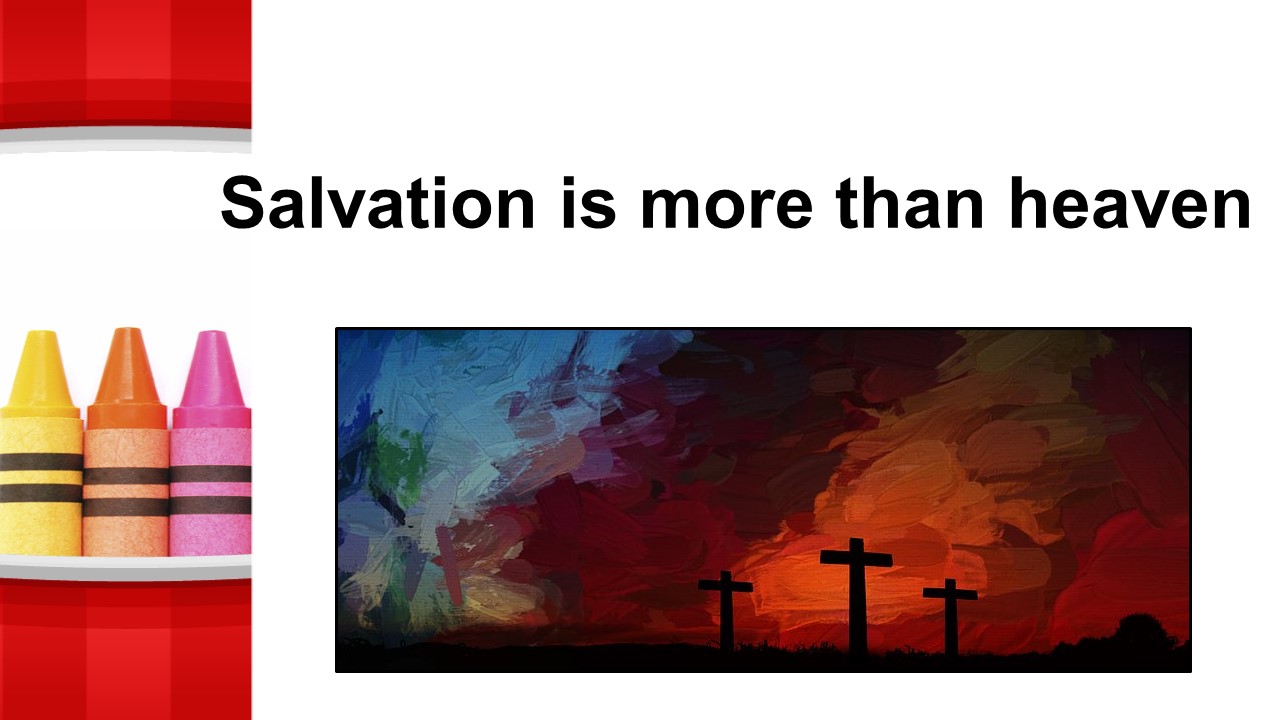
I often pound the point that salvation isn’t just a scheme to get us into heaven; we’re created and redeemed for a nobler task. We’re to love God by responding to his call to be his people in the world. As God’s chosen people, Paul writes to the Corinthians, we have hope which should lead us to act with boldness.[2] We are to be about transformation of ourselves into Christ’s likeness. And we’re to be transforming the world, striving to make it more like the kingdom of God. This transformation means that because we have experienced grace, we should be gracefully striving to change the world for the better. And it starts here, within the church. As one of the founding documents of the Presbyterian Church maintains, we are to exhibit the kingdom of God.[3]
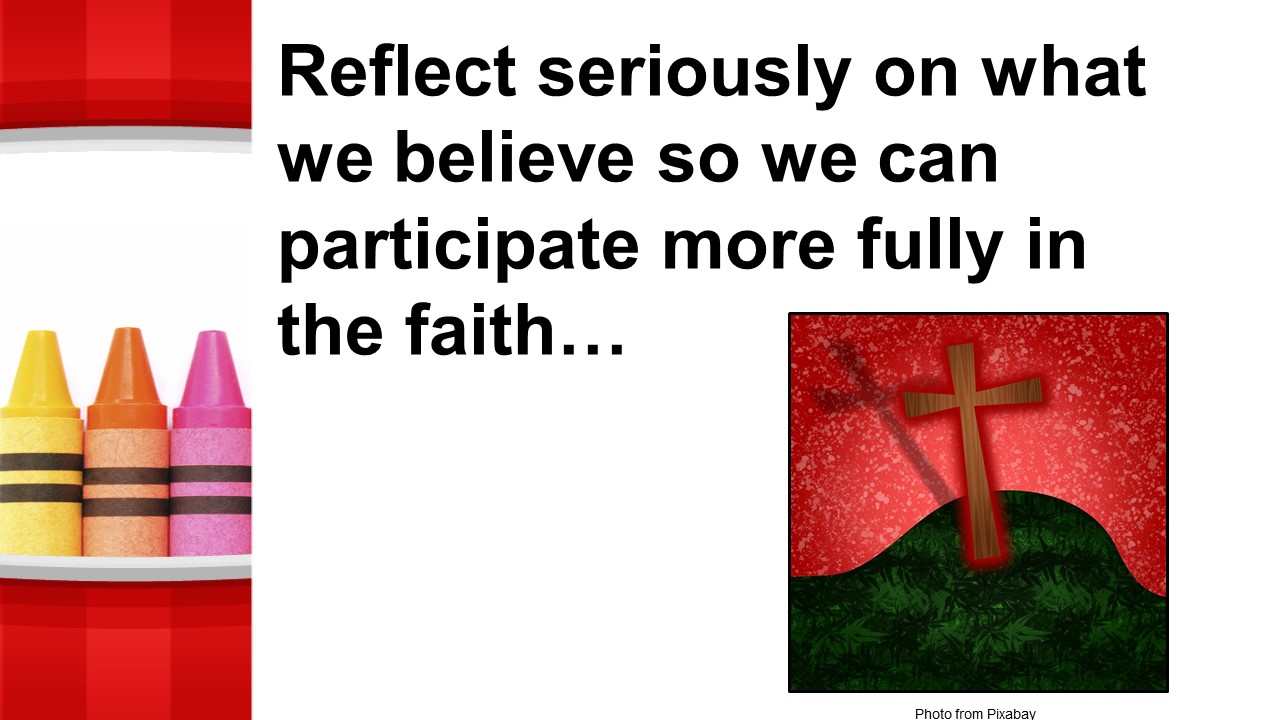
Cynthia Rigby, a Presbyterian and a theology professor at Austin Seminary, puts it this way: “Presbyterian theology upholds both the value of believing right now and the importance of reflecting seriously on what we believe, so we can participate more fully in the faith that is our inheritance.”[4] Such reflection is what Paul refers to here at the beginning of the 12th Chapter of Romans. Instead of us surrendering to worldly standards, we are to hold up a vision of a more just and holy world.
John Calvin, in his commentary on Romans, notes that Paul makes a shift at the beginning of the 12th chapter. Coming into this point in his letter, Paul has been dealing with those things necessary for the kingdom, “that righteousness is to be sought from God alone, that salvation is to come to us alone from his mercy, that all blessings are laid up and daily offered to us in Christ only…” Paul then changes his focus to show us how the Christian life is to be formed.[5]

Paul’s transition here is from theology to ethics. Simply stated, theology deals with God and what God is up to and how we are to relate to the Almighty. Ethics is how we live, how we relate to one another. According to Paul, our ethics are not grounded in God’s law, but in our gracious response of gratitude for God’s grace.[6]
Paul tells us in Verse 1 to sacrifice ourselves to God, but not because we are trying to earn God’s favor. This is one of Paul’s big points: “We’re saved by grace” and we’re to respond to that grace with obedience.[7]
Eugene Peterson, who translated The Message version of scripture that we read this morning, makes it clear that what we give to God isn’t just our “church work.” We offer it all: “sleeping, eating, going-to-work, and walking-around life…” We embrace what God does for us; which is the best thing we can do for ourselves.

Verse two is the focal point of the change in direction that Paul takes in the letter. “Do not be conformed to this world,” as it’s often translated, “But be transformed by the renewing of your minds, so that you may discern what is the will of God.”[8] Let me suggest that Paul’s admonishment “not to be conformed to the world” is a lot easier to say than it is to do. We’re surrounded by attempts to mold and to shape us in the ways of the world. Our friends and peers constantly make suggestions that we should do this or that. And it doesn’t stop there. We’re constantly bombarded by advertisements and marketing ploys telling us to try this or that, to buy these items, to vote this way. The hidden promise in this rhetoric is that if we just try what is offered, we’ll be happy, but such messages never live up to their promises. We accumulate more and more and are often less and less happy. Jesus asks, “What will it profit us if we gain the world and forfeit our lives?”[9]
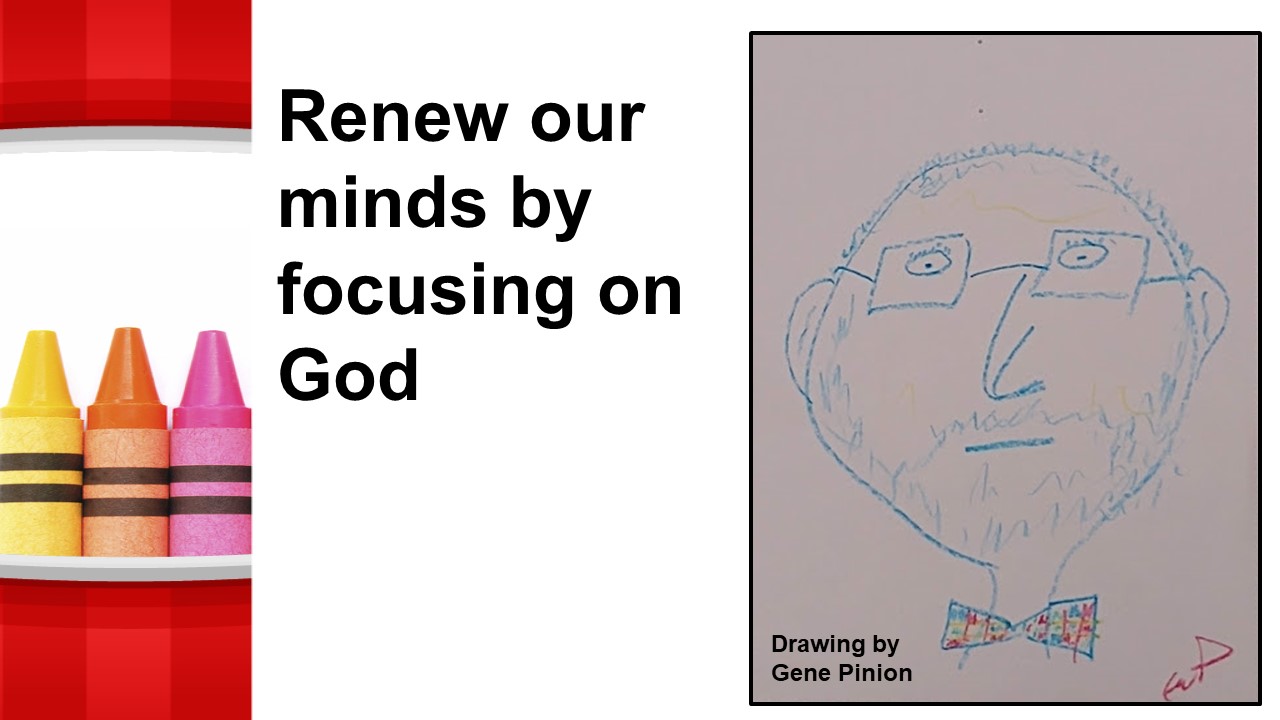 Instead of letting the world shape our thoughts and actions, we’re to renew our minds by focusing on God. In John Ortberg’s book, the me I want to be (which I believe our Serendipity class studied a few years ago), we’re reminded of the power of a habit and how our thought patterns are as habitual as brushing our teeth.[10] Ever wonder why someone always sees trouble ahead and always criticizes, while another person sees an opportunity and is excited about the future? Or thought about why one person is always grouchy and another cheerful? Or why one sees a glass half-empty and another half-full? We have habitually trained ourselves to be a certain way by what our minds focus on.
Instead of letting the world shape our thoughts and actions, we’re to renew our minds by focusing on God. In John Ortberg’s book, the me I want to be (which I believe our Serendipity class studied a few years ago), we’re reminded of the power of a habit and how our thought patterns are as habitual as brushing our teeth.[10] Ever wonder why someone always sees trouble ahead and always criticizes, while another person sees an opportunity and is excited about the future? Or thought about why one person is always grouchy and another cheerful? Or why one sees a glass half-empty and another half-full? We have habitually trained ourselves to be a certain way by what our minds focus on.
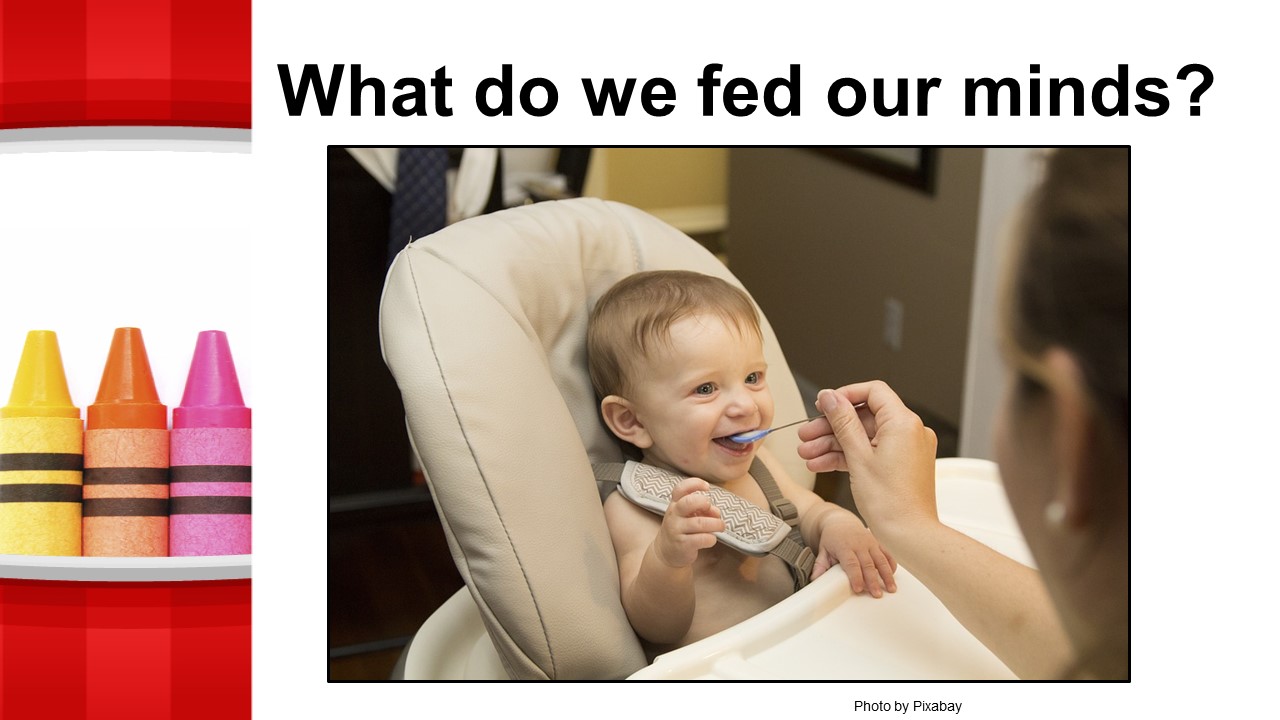 In Colossians, Paul encourages us to focus our minds on things above, not earthly things.[11] If we train our minds to listen to God’s Word, to look for evidence of God’s hand in the world, we’re going to feed our minds an incredible diet that has the power to change how we think. Likewise, if we always see problems and always feel persecuted and beaten down, we’re also feeding our minds a rich diet and we’re going be bitter. And no one will want to be around us!
In Colossians, Paul encourages us to focus our minds on things above, not earthly things.[11] If we train our minds to listen to God’s Word, to look for evidence of God’s hand in the world, we’re going to feed our minds an incredible diet that has the power to change how we think. Likewise, if we always see problems and always feel persecuted and beaten down, we’re also feeding our minds a rich diet and we’re going be bitter. And no one will want to be around us!
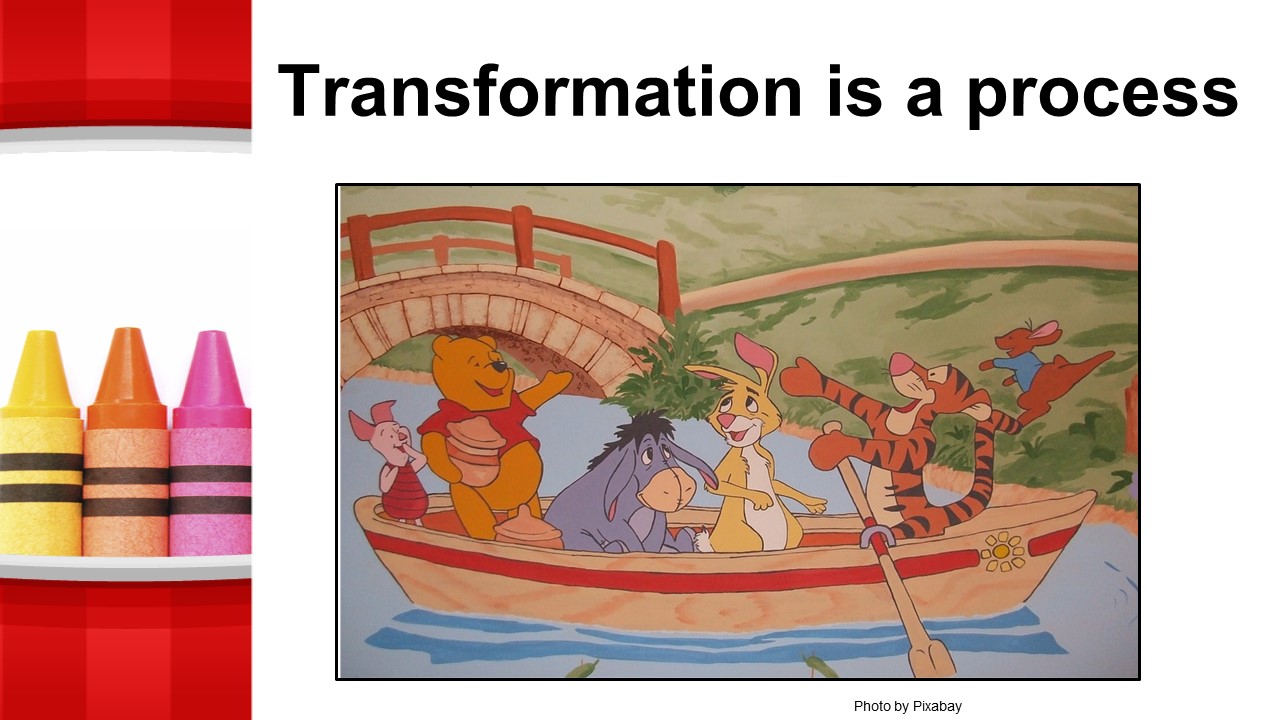 Paul isn’t suggesting here that we have an instant change, that all of a sudden go from being Eeyore to Winnie the Pooh, from being a sourpuss to the life of the party, from being depressed to hopeful. We’re to “be transformed.” Transformation implies a process. We don’t create habits overnight, so we can’t recreate new and better habits overnight.[12] Transformation isn’t a one-time change; it’s something that requires time and effort. When we fail, we shouldn’t beat ourselves up, but learn from our failures and ask God’s forgiveness and help as we move forward, toward that goal of being more and more Christ-like and less and less like the world.
Paul isn’t suggesting here that we have an instant change, that all of a sudden go from being Eeyore to Winnie the Pooh, from being a sourpuss to the life of the party, from being depressed to hopeful. We’re to “be transformed.” Transformation implies a process. We don’t create habits overnight, so we can’t recreate new and better habits overnight.[12] Transformation isn’t a one-time change; it’s something that requires time and effort. When we fail, we shouldn’t beat ourselves up, but learn from our failures and ask God’s forgiveness and help as we move forward, toward that goal of being more and more Christ-like and less and less like the world.
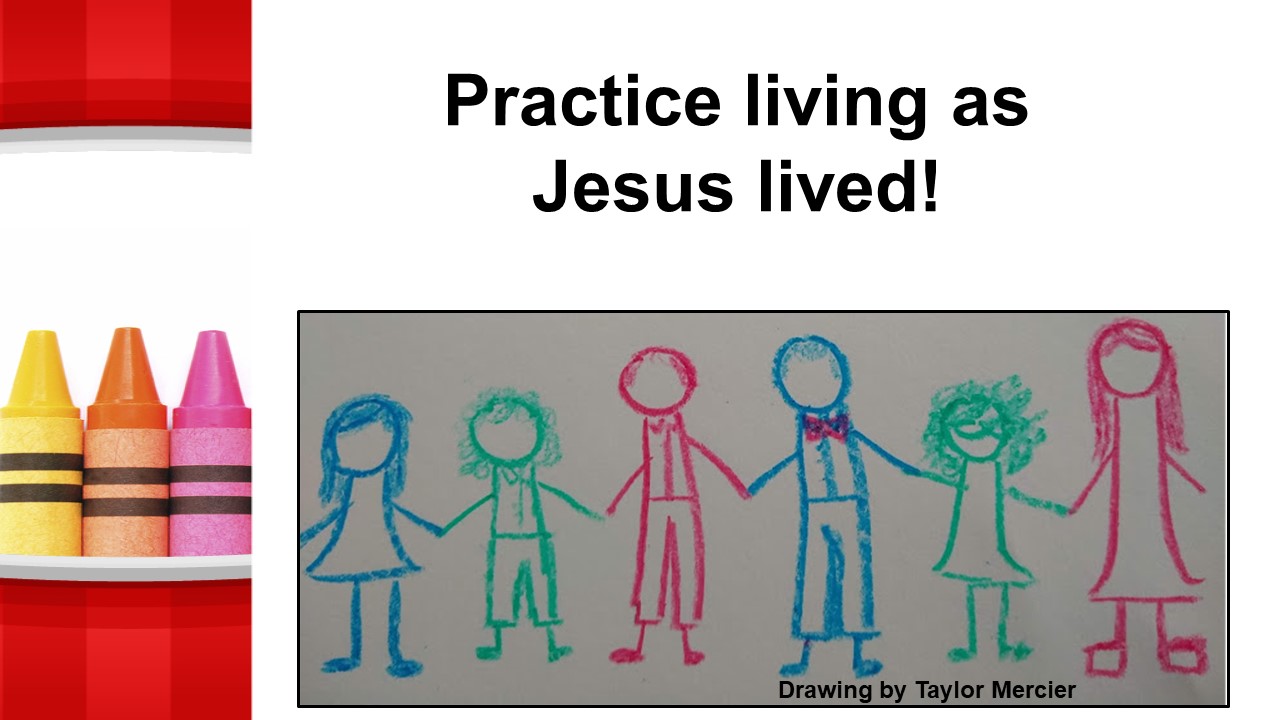 We need to embark on an effort to renew our minds. We need to drink deeply from the Scriptures as we read and study the Bible, individually and in groups. We need to ask God’s Spirit to guide, fill and help us learn to discern what God is doing in the world and how we can be a part of it. But we can’t just stop there. We’re not just to read the scriptures, we’re to “do something.” We practice living the life Jesus demonstrated. Unfortunately, as John Ortberg whom I quoted earlier, notes, we often debate doctrine and beliefs, tradition and interpretation, than do what Jesus said… “It’s easier to be smart than to be good.”[13]
We need to embark on an effort to renew our minds. We need to drink deeply from the Scriptures as we read and study the Bible, individually and in groups. We need to ask God’s Spirit to guide, fill and help us learn to discern what God is doing in the world and how we can be a part of it. But we can’t just stop there. We’re not just to read the scriptures, we’re to “do something.” We practice living the life Jesus demonstrated. Unfortunately, as John Ortberg whom I quoted earlier, notes, we often debate doctrine and beliefs, tradition and interpretation, than do what Jesus said… “It’s easier to be smart than to be good.”[13]
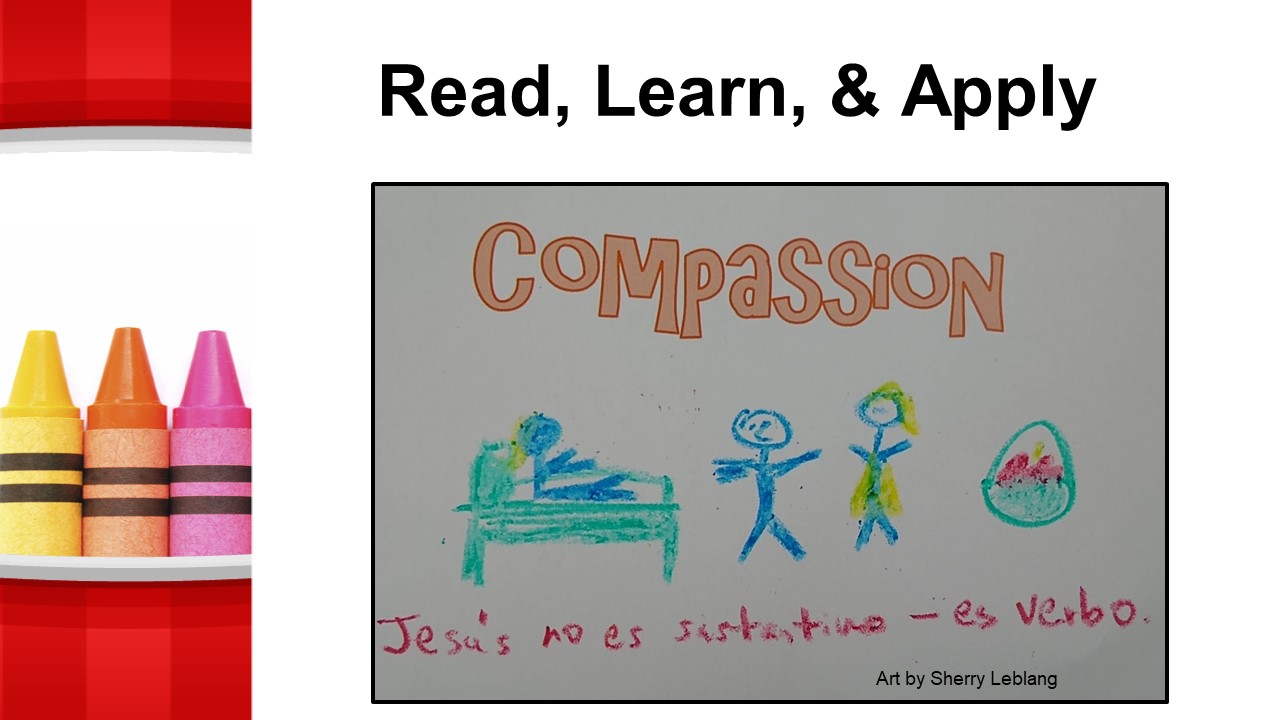 We read God’s words, we learn God’s nature by discussing the Word with others, and we apply it to our lives… Read, Learn and Apply. Don’t be conformed to this world, but be transformed by the renewing of your minds so that you may discern the will of God. Amen.
We read God’s words, we learn God’s nature by discussing the Word with others, and we apply it to our lives… Read, Learn and Apply. Don’t be conformed to this world, but be transformed by the renewing of your minds so that you may discern the will of God. Amen.
©2019
[1] Protestant theology tends to separation justification, which is a onetime event, and sanctification, which continues through this lifetime and is complete in the resurrection.
[2] 2 Corinthians 3:12.
[3] This is from the “Great Ends of the Presbyterian Church, adopted by the United Presbyterian Church of North America and is now a part of our Book of Order, F-1.0401.
[4] Cynthia L. Rigby, “Jesus is the Way: Presbyterian Theology Affirms the Uniqueness of Christ,” Presbyterians Today (June 2011), 11.
[5] John Calvin, Commentaries on the Epistle of Paul the Apostle to the Romans, Rev. John Owen, translator (Grand Rapids: Eerdmans, 1948), 449.
[6] The New Interpreter’s Study Bible (Nashville: Abingdon Press, 2003), 2028 n12:1-8.
[7] Ephesians 2:5, 8
[8] Romans 12:2a, New Revised Standard Version
[9] Matthew 16:26, Mark 8:36, Luke 9:25
[10] John Ortberg, the me I want to be: becoming God’s best version of you (Grand Rapids: Zondervan, 2010), 91.
[11] Colossians 3:2
[12] For insight into this, see Charles Duhigg, The Power of Habit: Why We Do What We do In Life and Business (New York: Random House, 2014).
[13] Ortberg, 112-112

I liked the volcano metaphor.
And oh my gosh! It has been forever since I’ve seen the book Harold and the Purple Crayon.
Chrys, imagine having the book read to you in church! 🙂
Easier to be smart than good – so true.
Harold was the first book our infant daughter grabbed out of my hands to leaf through on her own terms. It was a deeply meaningful moment in our book-loving home.
I really like the idea that we can train our minds and our habits of thought if we only choose to do so.
That was an inspiring, thoughtful, insightful post. The world can use some positive transformation today.